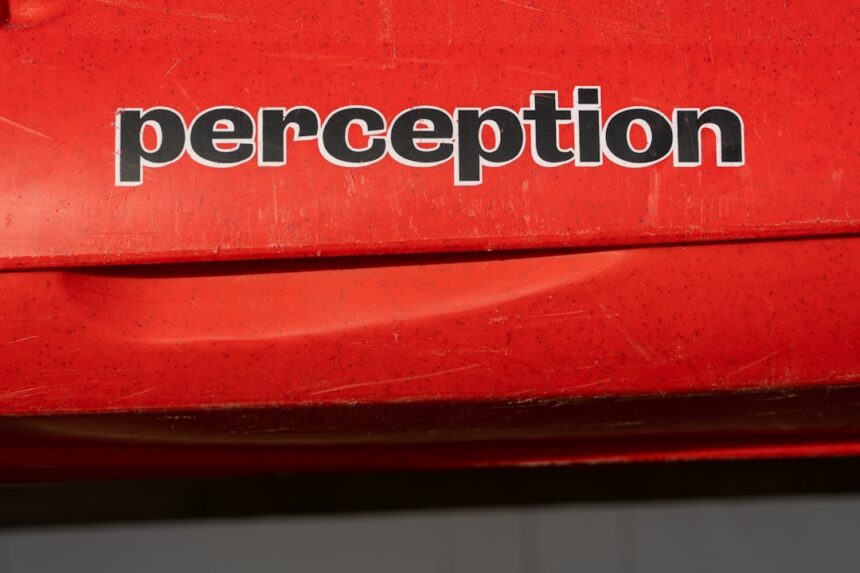Depersonalization-derealization is a complex psychological phenomenon that can leave you feeling detached from your own thoughts, feelings, or sense of self. It often manifests as a feeling of being an outside observer of your own life, as if you are watching yourself from a distance. This experience can be unsettling and disorienting, leading to confusion about your identity and reality.
While it is not classified as a mental disorder on its own, it can occur as a symptom of various psychological conditions, including anxiety and depression. Derealization, on the other hand, involves a sense of detachment from your surroundings. You may perceive the world around you as unreal or distorted, as if you are living in a dream or a movie.
This can create a profound sense of alienation, making it difficult to connect with people or engage fully in your environment. Together, depersonalization and derealization form a unique experience that can be both frightening and isolating, often leaving you questioning your own existence and the nature of reality itself.
Key Takeaways
- Depersonalization-Derealization is a dissociative disorder characterized by feeling detached from oneself and the surrounding environment.
- Individuals with depersonalization may feel like they are observing themselves from outside their body, while those with derealization may perceive the world as unreal or distorted.
- Symptoms of depersonalization-derealization include emotional numbness, distorted perception of time, and feeling disconnected from one’s own thoughts and emotions.
- Triggers for depersonalization-derealization can include stress, trauma, substance abuse, and certain medications.
- Living with depersonalization-derealization can impact daily life, but coping strategies and seeking professional help can help manage the condition and improve quality of life.
The Experience of Depersonalization
When you experience depersonalization, it can feel as though you are watching your life unfold from a distance. You might notice that your thoughts and emotions seem disconnected from your physical body, leading to a sense of unreality. This detachment can manifest in various ways; for instance, you may feel as though you are in a dreamlike state or that your body does not belong to you.
You might even struggle to recognize yourself in the mirror or feel as if your actions are being controlled by someone else. This experience can be deeply unsettling. You may find yourself questioning your identity and the authenticity of your experiences.
It can lead to feelings of anxiety and confusion, as you grapple with the dissonance between how you perceive yourself and how you know you should feel. The emotional toll of depersonalization can be significant, often leaving you feeling isolated and misunderstood by those around you.
The Experience of Derealization

Derealization can be equally disconcerting, as it alters your perception of the world around you. You may find that familiar places seem strange or distorted, as if they are part of a surreal landscape. Everyday objects might appear flat or lifeless, and interactions with others can feel superficial or disconnected.
This altered perception can create a sense of fear or anxiety, as you struggle to reconcile your experiences with the reality that others seem to perceive. In moments of derealization, you might feel as though you are trapped in a bubble, unable to fully engage with the world outside. This sensation can lead to a profound sense of loneliness, as it becomes challenging to connect with friends, family, or even strangers.
The world may seem like a stage set rather than a vibrant reality, making it difficult to find joy or meaning in everyday activities. As these experiences persist, they can contribute to feelings of hopelessness and despair.
Symptoms of Depersonalization-Derealization
| Symptom | Description |
|---|---|
| Feelings of detachment | Feeling disconnected from one’s body or thoughts |
| Emotional numbness | Lack of emotional response or feeling emotionally numb |
| Distorted perception | Perceiving the environment as unreal or distorted |
| Memory problems | Difficulty remembering certain events or experiences |
| Lack of sense of self | Feeling like one’s identity or sense of self is unclear or lost |
The symptoms of depersonalization-derealization can vary widely from person to person. Commonly reported symptoms include feelings of detachment from oneself or one’s surroundings, emotional numbness, and difficulty concentrating. You may also experience a distorted sense of time, where moments feel elongated or compressed.
These symptoms can fluctuate in intensity, sometimes triggered by stress or anxiety. In addition to these core symptoms, individuals may report physical sensations such as dizziness or lightheadedness during episodes of depersonalization-derealization. You might also experience changes in sensory perception, such as heightened sensitivity to sounds or visual distortions.
These symptoms can be distressing and may lead to further anxiety about experiencing them again in the future.
Triggers for Depersonalization-Derealization
Understanding the triggers for depersonalization-derealization is crucial for managing these experiences. Stressful life events, such as trauma, loss, or significant changes in your life circumstances, can act as catalysts for episodes. You may find that periods of intense anxiety or panic attacks also precipitate feelings of detachment.
Recognizing these triggers can empower you to take proactive steps to mitigate their impact.
Certain drugs, particularly hallucinogens or stimulants, may induce feelings of detachment or altered perception.
If you find that substance use correlates with your experiences of depersonalization-derealization, it may be worth considering reducing or eliminating these substances from your life.
The Impact on Daily Life

Living with depersonalization-derealization can significantly impact your daily life and overall well-being. You may find it challenging to engage in social situations or maintain relationships due to feelings of disconnection from yourself and others. This detachment can lead to misunderstandings with friends and family who may not fully grasp what you are experiencing.
Moreover, the cognitive effects associated with depersonalization-derealization can hinder your ability to focus on tasks at work or school. You might struggle with memory retention or decision-making, which can exacerbate feelings of inadequacy and frustration. As these challenges accumulate, they can contribute to a cycle of anxiety and depression that further complicates your experience.
Coping Strategies for Depersonalization-Derealization
Finding effective coping strategies is essential for managing the symptoms of depersonalization-derealization. Mindfulness practices can be particularly beneficial; by focusing on the present moment and grounding yourself in your surroundings, you may reduce feelings of detachment. Techniques such as deep breathing exercises or progressive muscle relaxation can help anchor you when experiencing episodes.
Engaging in creative outlets can also serve as a powerful coping mechanism. Whether through art, writing, or music, expressing yourself creatively allows for an exploration of your feelings and experiences in a safe space. Additionally, maintaining a routine that includes regular physical activity and social interaction can help combat feelings of isolation and promote overall mental well-being.
Seeking Professional Help
If you find that depersonalization-derealization significantly impacts your quality of life, seeking professional help is an important step toward recovery. A mental health professional can provide support and guidance tailored to your specific needs. Therapy options such as cognitive-behavioral therapy (CBT) have shown promise in helping individuals manage their symptoms effectively.
In some cases, medication may also be considered as part of a comprehensive treatment plan. Antidepressants or anti-anxiety medications may help alleviate underlying conditions contributing to depersonalization-derealization experiences. Collaborating with a healthcare provider ensures that you receive the most appropriate care for your situation.
Understanding the Causes
The causes of depersonalization-derealization are multifaceted and can vary from person to person. Research suggests that these experiences may arise from a combination of genetic predisposition, environmental factors, and psychological stressors. Traumatic events or prolonged exposure to stress can disrupt the brain’s normal functioning, leading to feelings of detachment.
Additionally, certain personality traits may make individuals more susceptible to experiencing depersonalization-derealization. For instance, those who tend to be highly sensitive or prone to anxiety may be more likely to encounter these phenomena during stressful periods. Understanding these underlying factors can provide valuable insight into your experiences and guide your journey toward healing.
Differentiating Depersonalization-Derealization from Other Conditions
It is essential to differentiate depersonalization-derealization from other mental health conditions that may present similar symptoms. For example, dissociative disorders encompass a range of experiences related to disconnection from self and reality but often involve more severe disruptions in identity and memory. In contrast, depersonalization-derealization typically involves transient episodes rather than chronic dissociation.
A thorough assessment by a mental health professional is crucial for accurate diagnosis and effective treatment planning.
Living with Depersonalization-Derealization: Finding Support and Resources
Living with depersonalization-derealization can feel isolating; however, finding support is vital for navigating this challenging experience. Connecting with others who share similar experiences through support groups or online forums can provide validation and understanding. Sharing your story with those who truly comprehend what you’re going through fosters a sense of community and belonging.
Additionally, seeking out educational resources—such as books, articles, or podcasts—can enhance your understanding of depersonalization-derealization and equip you with tools for managing symptoms effectively. Remember that you are not alone in this journey; many individuals have successfully navigated their experiences with depersonalization-derealization and found ways to reclaim their sense of self and reality. In conclusion, while depersonalization-derealization can be distressing and disorienting, understanding its nature and seeking appropriate support can pave the way for healing and recovery.
By exploring coping strategies and professional help options, you can work toward regaining control over your experiences and fostering a deeper connection with yourself and the world around you.
If you’re interested in learning more about the pronunciation and understanding of depersonalization-derealization, you might find it helpful to explore related psychological concepts and terms. A great resource for this is the article available on Unplugged Psychology’s website. This platform offers a variety of insights into psychological phenomena, which can enhance your comprehension of complex terms like depersonalization-derealization. For further reading, you can visit their sample page for more detailed information.
Learn More About Depersonalization & Derealization
FAQs
What is depersonalization-derealization?
Depersonalization-derealization is a mental health condition characterized by feeling detached from oneself (depersonalization) and feeling detached from the surrounding environment (derealization). It can be a symptom of various mental health disorders, such as anxiety, depression, and post-traumatic stress disorder.
What are the symptoms of depersonalization-derealization?
Symptoms of depersonalization-derealization may include feeling like an outside observer of one’s thoughts, feelings, and body (depersonalization), and feeling like the world is unreal or distorted (derealization). Other symptoms may include emotional numbness, disconnection from one’s own identity, and difficulty engaging in daily activities.
How is depersonalization-derealization diagnosed?
Depersonalization-derealization is typically diagnosed by a mental health professional, such as a psychiatrist or psychologist, through a comprehensive evaluation of the individual’s symptoms, medical history, and any underlying mental health conditions. There are no specific tests for depersonalization-derealization, so the diagnosis is based on the individual’s reported experiences.
What are the treatment options for depersonalization-derealization?
Treatment for depersonalization-derealization may include psychotherapy, such as cognitive-behavioral therapy (CBT) or dialectical behavior therapy (DBT), to help individuals understand and manage their symptoms. Medications, such as antidepressants or anti-anxiety medications, may also be prescribed to alleviate symptoms. It’s important for individuals to work with a mental health professional to determine the most effective treatment plan for their specific needs.
How can I support someone experiencing depersonalization-derealization?
If you know someone experiencing depersonalization-derealization, it’s important to offer understanding, patience, and support. Encourage them to seek professional help and provide a non-judgmental space for them to express their feelings. Educate yourself about the condition to better understand what they are going through and offer to accompany them to therapy or doctor’s appointments if they feel comfortable.




